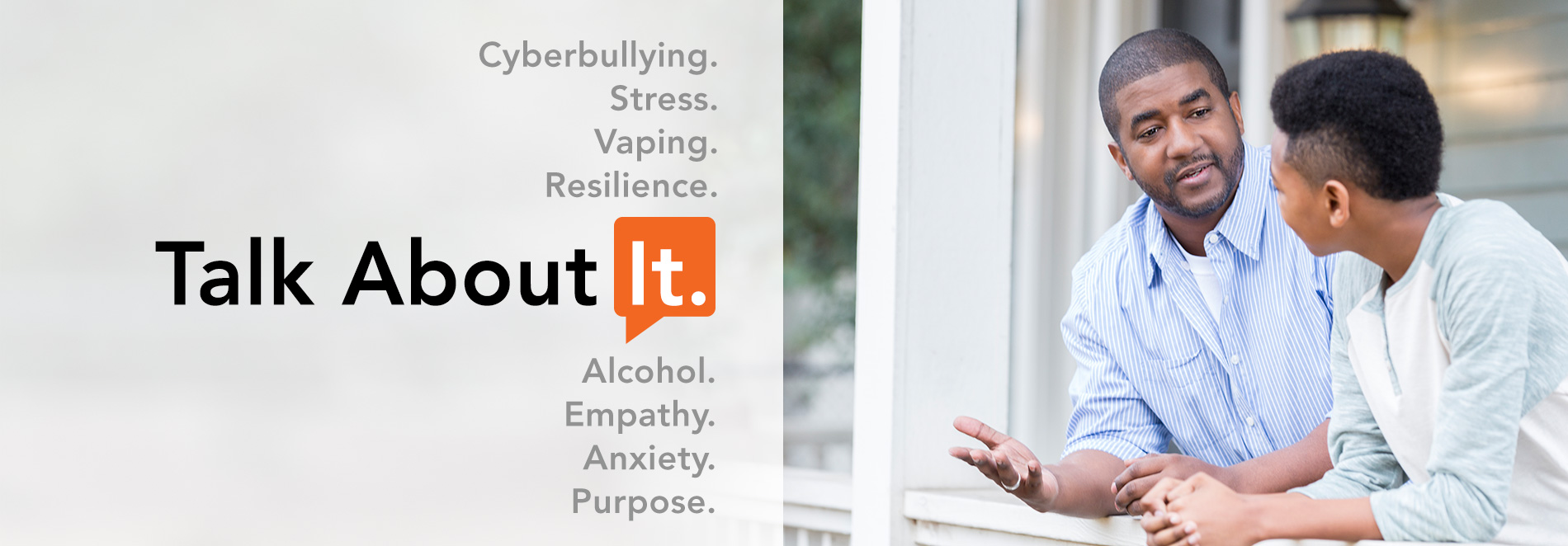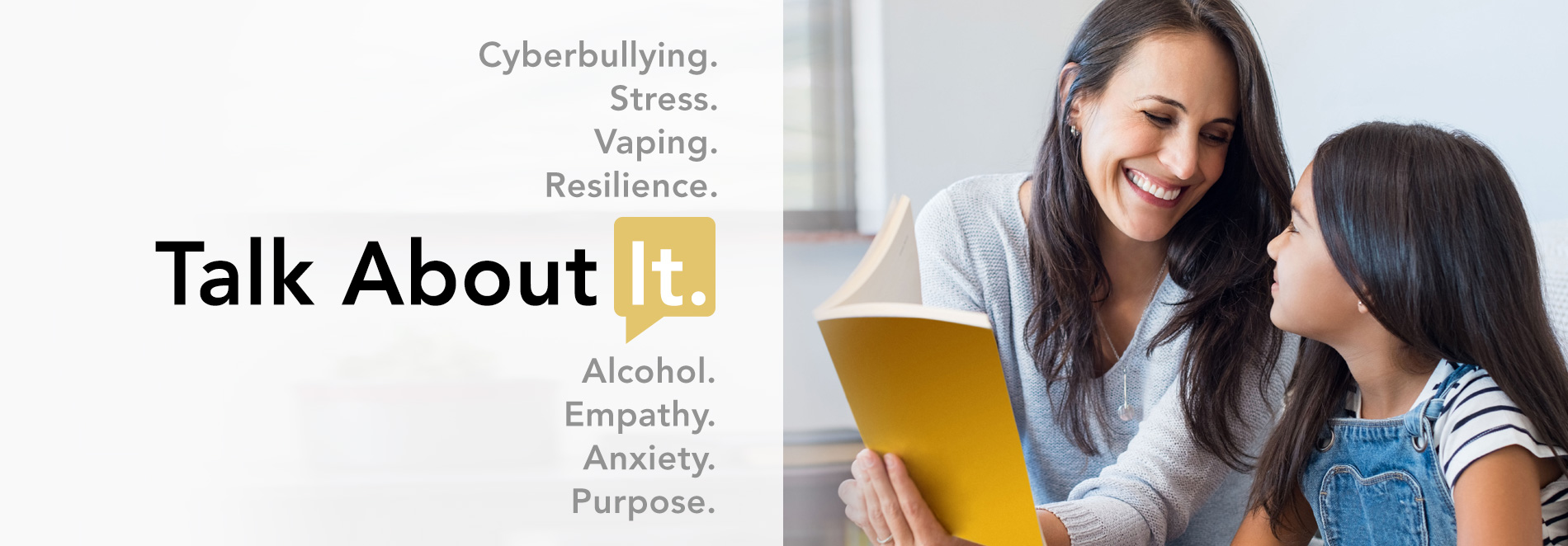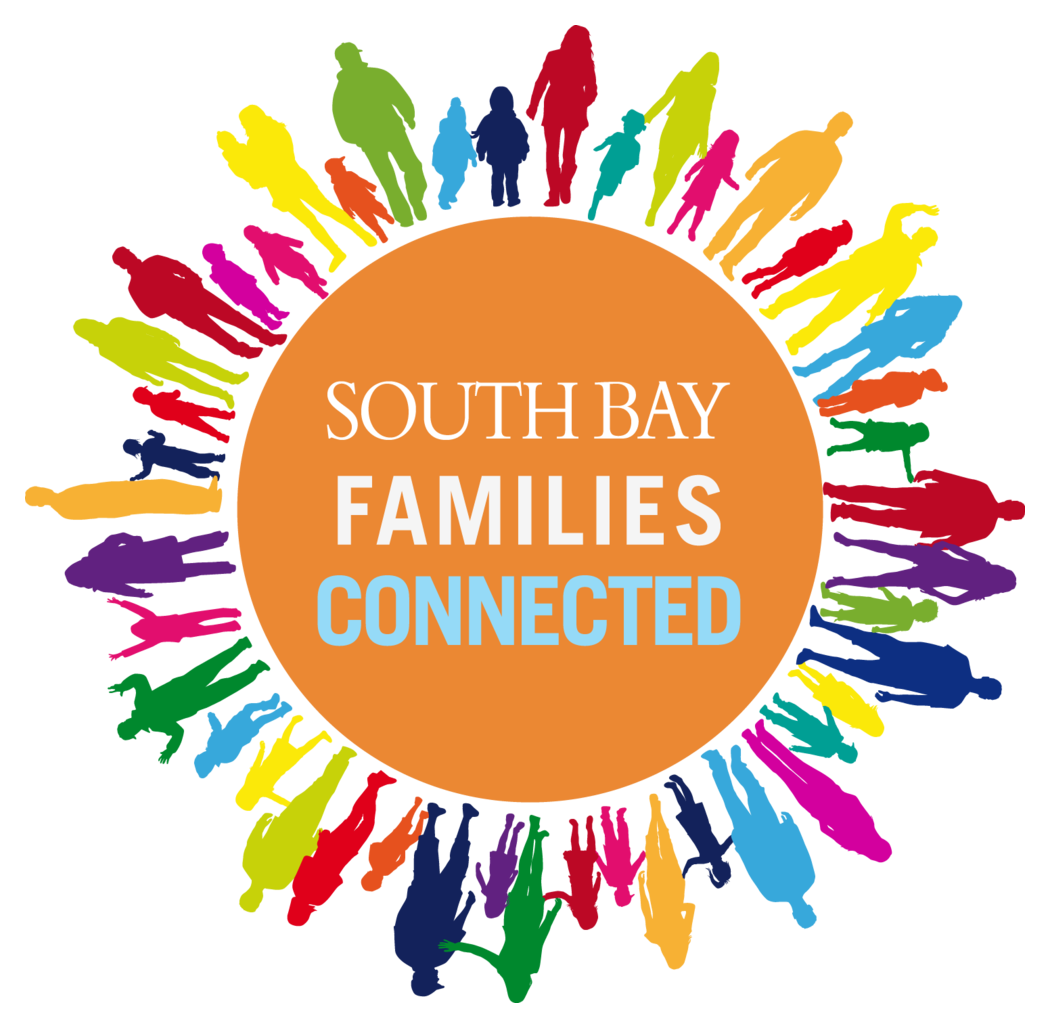Talk About It is a series of conversation starters for parents and caregivers that focus on a variety of topics relevant to today’s youth. Whether it be social media, alcohol or mental health, it’s never too early, or too late, to start the conversation.
Understand your impact as a parent. You are the most important influence on your child, so talk early and talk often. Turn everyday events into teachable moments. You can have conversations during a car ride, at the dinner table, while walking home from school or during a shared activity - any place where you have their undivided attention, they are comfortable and can openly express themselves without feeling pressured.
• Choose a good time and place.
− Set aside time after dinner, before bed or on a walk or drive.
• Listen attentively and calmly – with interest, patience and openness.
• Avoid any urge to judge, blame or lecture. Let your child take the time to express their thoughts and feelings.
• Notice out loud. Tell your child when you notice something bothering them and if you can, label the feeling.
− “You haven’t been yourself lately.”
• Let your child know you are hearing what they’re saying by summing up what they’ve said and allowing them to confirm.
− “It seems like you’re feeling…”
• Use “I” statements to express yourself and describe how your child’s actions affect you and your feelings.
− “When you don’t come home on time, I worry that something terrible has happened to you. I need you to call me when you know you’ll be late, so I know you’re okay.”
• Ask open-ended questions to achieve a more engaging conversation.
• Communicate in a straightforward manner.
• Offer empathy and support.
• Create an environment where your child feels safe and comfortable.
• Let them know the teen years are tough, but you are there for them.
• Share your own stories so your kid knows they are not alone in their struggles.
• Show you care and want to understand.
• Support can be in the form of a hug, heartfelt words or simply being present and available.
• Discuss healthy ways to cope with their problems.
• Communicate the rules you have surrounding technology and substance use and discuss the consequences if they break those rules.
• Use age appropriate language. Elementary aged children will need fewer details than high school students.
• Ask your teen to think about their future and how the possible consequences will affect their dreams and goals.
• Understand your influence as a parent. You are the most important influence on your child, so talk early and talk often.
− Most children at age 6 know that alcohol is only for adults, but between ages 9-13, they start to view alcohol differently.
• Turn every day events into “teachable moments.”
− Talk about cyberbullying or vaping if it comes up on TV or on the radio.
Thursday, May 11, 2020: Talk About It Workshop: Facilitating Family Connection Through Physical Activity
Thursday, May 21, 2020: Talk About It Workshop: Mindfulness for the Family While Safer at Home
Thursday, May 28, 2020: Talk About It Workshop: Managing Family Conflict & Creating Balance at Home
Thursday, June 4, 2020: Youth Substance Use and Vaping with Clear Recovery Center
Thursday, June 11, 2020: Helping Your Senior: Tips for Helping Your Teen Cope with Missing Milestone Life Events
- Workshop Recording
- Resource Guide
- Blog: Tips for Helping Your Teen Cope with Missing Milestones Life Events
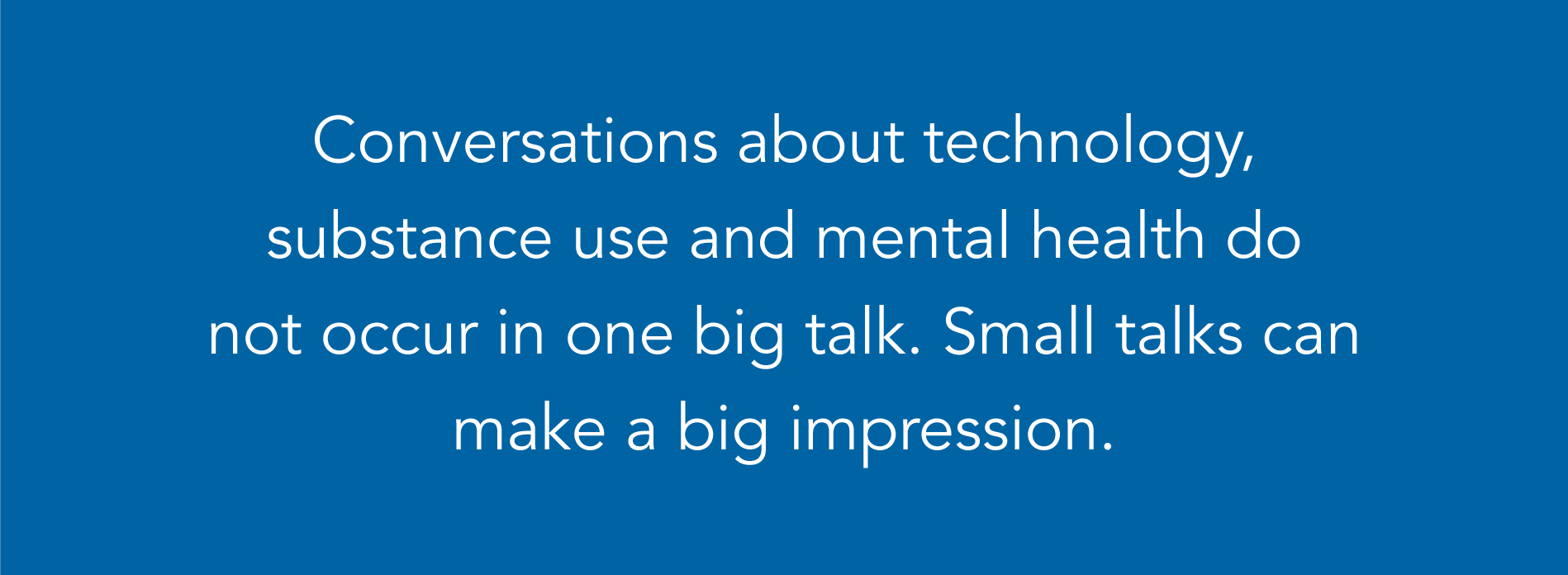

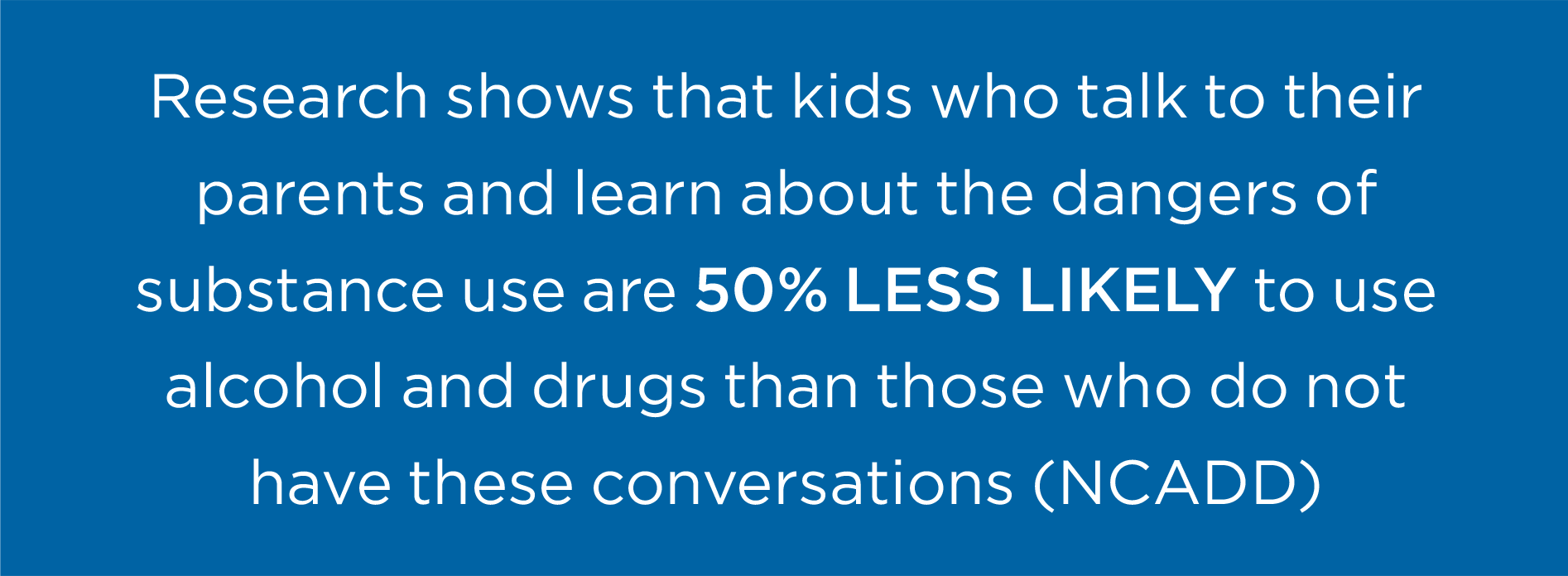

Partnership for Drug-Free Kids: How to Talk to Your Teen | MentalHealth.gov: Talk About Mental Health: For Parents & Caregivers | KidsHealth.org: Helping Kids Cope with Stress | KidsHealth.org: Helping Kids Handle Worry | Substance Abuse and Mental Health Services Administration: Why Small Conversations Make a Big Impression | Substance Abuse and Mental Health Services Administration: Help for Talking About Alcohol | National Council on Alcoholism and Drug Dependence, Inc.: Talking with Children




